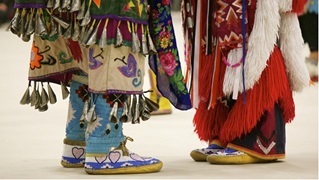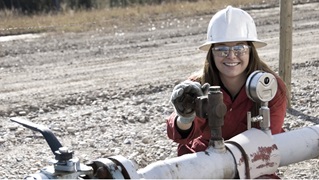‘Our language is our heartbeat’: Keeping a proud tradition alive
Alberta's University nuhelot’įne thaiyots’į nistameyimâkanak Blue Quills ready to launch Dene Language Program
The Denesuline language of Alberta and Saskatchewan has thousands of years’ worth of history, and a close connection to Apache and Navajo of the American Southwest.
Its future is somewhat uncertain.
“We believe that there are about 80 Dene speakers left in Cold Lake First Nation, and maybe a few speakers left in Heart Lake First Nation,” says Marilyn Shirt, dean of Indigenous languages at University nuhelot’įne thaiyots’į nistameyimâkanak Blue Quills, Alberta's only Indigenous university.
This fall, though, the St. Paul, AB-based university will be upping its linguistic game—launching a new Dene Language Program as part of its post-secondary offerings for Indigenous students in east-central and northeastern Alberta.
With about a dozen students registered for inaugural classes, a new instructor to lead the bachelor’s degree program, and a three-year curriculum based on feedback from fluent elders at Cold Lake First Nation, UnBQ will begin the process of dialectical and cultural rejuvenation for this Northern Athabaskan tongue.
“I’m so happy to be able for the opportunity to create something like this for Dene. The exciting thing for us is that we have an opportunity to help those communities revitalize their language,” says Shirt. “With language comes knowledge, and perspective—a different way of seeing the world.”
The university's Dene Language Program, being inaugurated in September with support from Enbridge, will be led by Jessie Sylvestre, who has an extensive background in language and Indigenous education. The new program—developed with the help of Cold Lake First Nation elders, including artist Alex Janvier—has already attracted attention from academic linguists across Canada.
“Our language is our heartbeat. A language is sacred, and something we need to hold close to our heart,” says Sylvestre, of Buffalo River, SK. “The Denesuline people have an oratory history, so there wasn’t much documentation available. But we need to do what we can to preserve and maintain it.”
Since 1971, UnBQ has served seven local First Nations communities—Beaver Lake, Cold Lake, Frog Lake, Whitefish Lake, Heart Lake, Kehewin and Saddle Lake—with a combined population of about 17,000.
Enbridge partners with and supports Indigenous communities near our pipelines and facilities, and education is a vital component of that partnership. In addition to skills development training, and leadership and management training, we also provide ongoing post-secondary scholarships at colleges and universities across Canada.
In 2015, we provided 55 Indigenous students with scholarships and bursaries totaling more than $126,000, including:
- Four $2,500 awards for engineering and energy students at the University of Ontario Institute of Technology (UOIT), in Oshawa, ON;
- Two $2,500 awards in the Dakota Language Program at the University of Brandon, in Brandon, MB;
- Eight $2,500 women in trades scholarships at the Saskatchewan Indian Institute of Technologies;
- One $2,500 Northern Student Award at Edmonton’s Northern Alberta Institute of Technology (NAIT); and
- Two $2,500 awards in the areas of engineering and applied science, or arts and science, at Queen’s University in Kingston, ON.
At UnBQ, Enbridge provided $20,000 toward seven Indigenous scholarships in each of the past three years. And now, as part of a new partnership with UnBQ, we’re supporting the Dene Language Program during the 2016-17 school season with a $17,000 donation, as well as three Cree Language Award scholarships worth $1,000 apiece.
“I’m very excited about starting the Dene Language Program,” says Sylvestre. “It’s driven by the Elders and the guidance they’ve offered us. This is our way of honoring them.”
(TOP PHOTO: A recent medicine walk on the land with Cold Lake First Nations elders and University nuhelot’įne thaiyots’į nistameyimâkanak Blue Quills' Jessie Sylvestre.)










